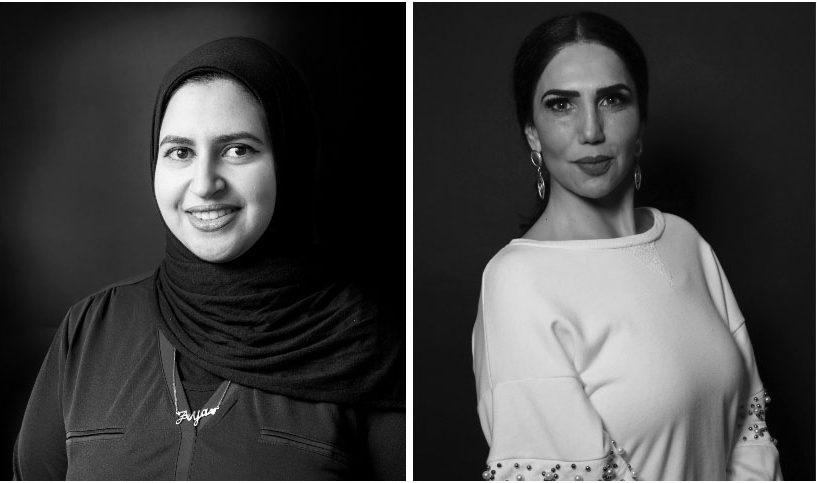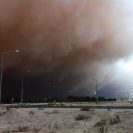By Juliet Dinkha and Aya Abdulhamid
Unprecedented times like the ones we are living through present us with the unique opportunity to conduct real-time research to further understand human behavioral psychology and interactions within a society. According to Psychology Today, Resilience is the psychological quality that allows some people to be knocked down by the adversities of life and come back at least as strong as before. Rather than letting difficulties, traumatic events, or failure overcome them and drain their resolve, highly resilient people find a way to change course, emotionally heal, and continue moving toward their goals .
Whether resilience is achieved or not depends on a number of factors influenced by the biological, social and psychological composition of the individual. Our study outlines the essential coping skills developed and fostered by individuals in a collectivist society, Kuwait, to aid in processing their experience of the crisis and becoming resilient. The study was conducted during the spike of the COVID-19 pandemic in Kuwait and targeted young adults between the age of 18 and 25 and received 99 responses. Using multiple methodologies—library research, media collections, structured questionnaires —our research focuses on ten key questions about anxiety, depression, experience of the crisis, how individuals are coping and lessons learned for the future. Our combination of approaches allowed us to gather social, and cultural contexts that helped explain the meanings of young adults’ attitudes, emotions, and actions as it relates to the pandemic and how this is contributing to their resilience.
Kuwait as A Collectivist Society
Kuwaiti society is conservative in nature and generally classified as a collectivist society. Family, and larger extended family always play a vital role in the individual’s life in Kuwait, and whether directly or indirectly, which impacts one’s future and social choices.
Carrying a certain family name is also associated with a sense of pride, pushing individuals to continuously seek approval from family and leaning towards social conformity. This has been changing over time, with the county being more exposed to western cultures and adopting liberal stances. The younger generations are developing more individualistic approaches to their societal interaction, within a collectivist society. They are also encouraged by their family, which remains their main support system, to pursue realizing their personal identity and stand out in their society with continuous accomplishments.
According to the Central Statistical Bureau in Kuwait, the country’s population consists of 69% non-Kuwaitis compared to 31% Kuwaitis (2018). Therefore, when looking closer at the society, one could point out that Kuwaiti society is both a collectivist and individualistic. Although a number of cultural similarities exist between most Arab nationalities present in Kuwait and Kuwaitis, expatriates tend to live individualistic lifestyles, because they are mainly away from their home country and family. The main reason behind their presence in the country is to make a better living for themselves and their nuclear family, thus embracing an individualistic lifestyle.
COVID-19 In Kuwait
With the spread of the virus across the world, Kuwait was one of the first countries to adopt measures and restrictions to fight the spread of the virus and to protect citizens and residents living within its borders. With those different restrictions and changes to the normal life, the country’s residents were exposed to unforeseen and unprecedented experiences.
How did the public deal with this crisis? How did this affect their current mindset and future views? What lessons have they learned and how did they learn to cope?
DEVELOPING COPING SKILLS & BEING RESILIENT
During the pandemic, respondents resorted to engaging in various activities to help them become less anxious and depressed to overcome the alarming health risks posed by the spread of the pandemic and the social restriction enforced by the government. The participants’ responses revealed four main themes which highlighted how they dealt with the COVID-19 crisis and helped them develop resilience. The four themes conceptualized include Cognitive Wellness; Interconnection to Self; Media Consumption and Social Support.
Cognitive Wellness
Respondents valued mental health and wellness and sought to achieve the same during the crisis as a coping mechanism. Subjects reported examples which correlated with this theme including “taking tips from experts in psychology”, “online therapy” and “staying positive”. This mentality of directing their mind to such acts were developed by the individuals themselves to alter their personal experience of the crisis and the change this reflects on their self-processing of the events around them. Other respondents focused on including positive self-talk into their daily routine to keep themselves optimistic and foresee the upcoming events in a positive light.
Interconnection to Self
Another common theme across the answers received emphasized on the individual solely, where respondents continued to engage in personal hobbies and interests as a mechanism to cope with their growing anxiety levels and the challenging situation this pandemic presented them with. Although Kuwait is mainly identified as a collectivist society, respondents regulated oneself as an individual during the time of crisis, hence resorted to self-centered activities such as “baking”, “reading”, “exercising”, “creating art”, “journaling” and “watching series”, amongst a number of other activities which are focused on the self. In order to foster resilience, one must be able to acknowledge the current adversary being experienced and try to develop the best mechanism or coping skills to be able to go through this adversary and become resilient. Our sample in this study followed this notion and started influencing their own selves and regulating their actions as a form of building resilience. Even the act of “online shopping” as reported by one of the respondents is a form of self-gratification and is practiced at an individual level.
Media Consumption
The flow of information is today’s time is almost instant, especially with the rise of social media and immediate transformation transmitting. “Social media” was reported by several respondents as one of the main coping mechanisms they have found to have helped them cope with the developing pandemic. How media is consumed and what sentiments the audience are left with differs from a respondent to another. However, during a crisis in general, people would be more likely to try to look at the glass half full and not half empty, and this can be achieved by seeking both verified and positive news from official sources, and avoiding participating in the spread of rumors to support in limiting the negativity associated with its circulation. Correlating with this notion, our respondents reported that during the pandemic they have been doing the following: “keeping up to date with the latest verified news of the pandemic”, “following social media accounts of the Ministry of Health”, “trying not to read the news”, “not spreading rumors” and “not reading fake news”.
Social Support
Although during the pandemic, Kuwait was subjected to strict social distancing measures and curfews, around 80% of the respondents reported that they engaged with their family and friends as a measure to cope with the crisis. Having access to one’s social support system is a fundamental measure to cope with adversaries and become able to develop resilience towards such situation and that’s because one feels the support and receives it to be able to overcome the hardship. Social interactions undertaken by our respondents were both direct and virtual. A number of the respondents mentioned that they were able to connect with their family and friends using the following methods: “talking to friends on the phone”, “scheduled Zoom meeting with my friends once every few weeks”, “family presence and support”, “group video calls”, “interacting with family members via WhatsApp” and “being around family”.
CONCLUSION
The above listed coping skills were conceptualized based on the respondents’ answers, which formed the basis for understating how the individuals in a collectivist society become resilient in times of crisis. Not only that resilience is evident to have been developed during crises, yet individuals were able to further foster their resilient self and envision a better future to be able to overcome the pandemic. Although several respondents focused on nurturing individual hobbies and interests as their coping mechanisms, their presence in a collectivist society helped them develop resilience during this pandemic. An advantage individuals have in a collectivist society is the immediate access to social support, mainly from family, due to the nature of the Kuwaiti society as a collectivist one, which encourages individuals to stay connected with their parents and family members, and in proximity as well, where individuals still continue to live in their parents’ house. This immediate social support which is accessible during crises helps individuals in developing a resilient self, at the time of crises and for other unforeseen circumstances.
REFERENCES
Central Statistical Bureau. (2018). Annual Statistical Abstract.
Gorodnichenko Y., Roland G. (2012) Understanding the Individualism-Collectivism Cleavage and Its Effects: Lessons from Cultural Psychology. In: Aoki M., Kuran T., Roland G. (eds) Institutions and Comparative Economic Development. International Economic Association Series. Palgrave Macmillan, London.
Psychology Today. (2020, April 9). Resilience.
APPENDIX
Survey on Resilience During Crises
In an effort to enhance the research on psychological responses to the current COVID-19 pandemic, examining the age group of 18 to 25, kindly complete the below survey with answers reflecting your feelings throughout the past 4-6 weeks. All answers will be treated confidentially. Please answer all the following:
How anxious do you feel on a scale of 0 to10? (0 not anxious and 10 very anxious) and list at least 3 of your symptoms.
How depressed do you feel on a scale of 0 to 10? (0 not depressed and 10 very depressed) and list at least 3 of your symptoms.
How prepared did you feel in dealing with the pandemic (0 not ready at all, 10 very ready)
List at least three ways which are helping you deal with this crisis (i.e. social support)
List at least three ways you feel quarantine increased your stress during the crisis.
What advice would you have for someone who is not coping well during this time?
Please list your expectations for yourself as returning to your normal routine.
How has COVID-19 changed you as a person?
Do you feel the world will be different after the crisis ends? (Yes or No, please explain)
Please reflect on your experience to date. Are there some personal lessons you have learned during the COVID-19 pandemic? List at least three.
For more information and psychological wellness tips, follow @dr.jdinkha.










